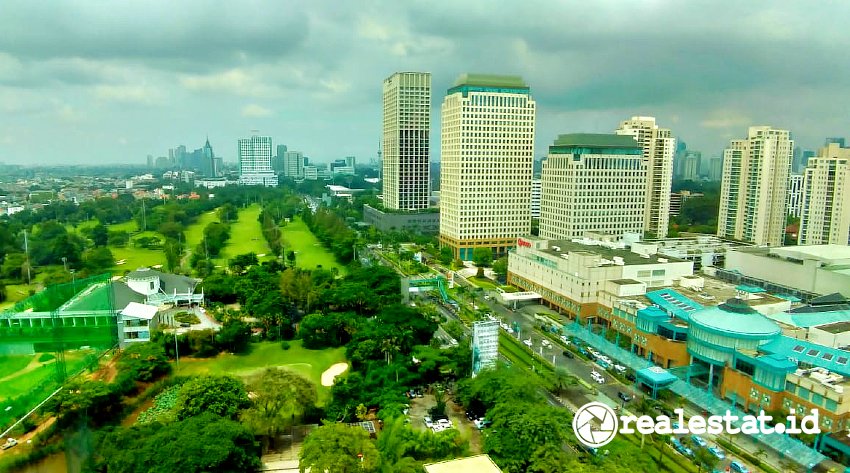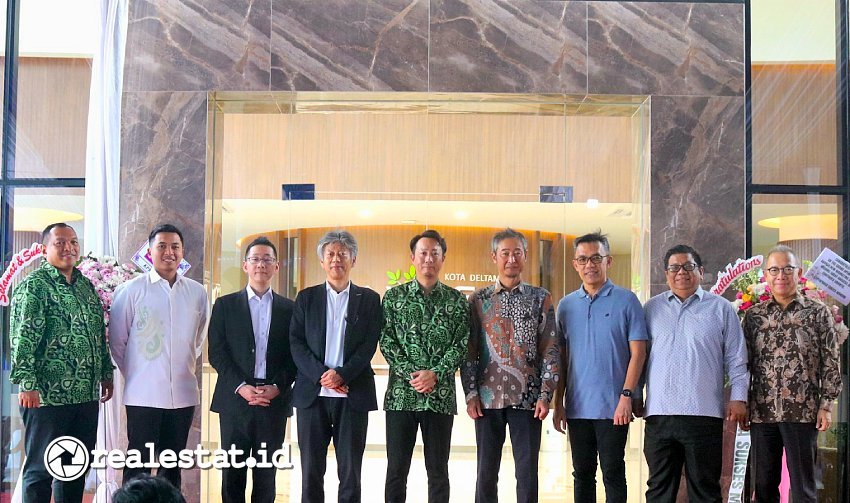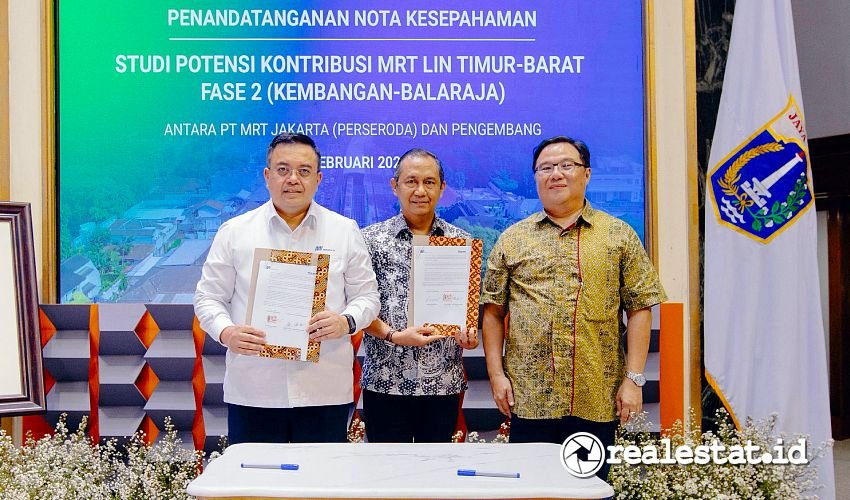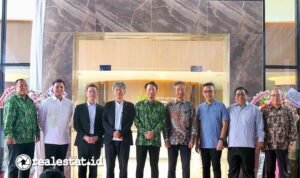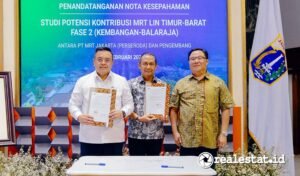RealEstat.id (Jakarta) – Covid-19 has set the general outlook of the Jakarta property market in 2020. The pandemic has undeniably had negative impact on the property market in Greater Jakarta. According to Cushman & Wakefield Indonesia, a good start was actually seen in the first 2 months of 2020, however, the existence of the large-scale social restrictions (PSBB) for several months in Jakarta has greatly affected the demand for property across almost all property markets.
Lini Djafar, Managing Director of PT Cushman & Wakefield Indonesia explained, several assumptions which may positively affect market activities in 2021: Positive outlook on Indonesia Economic Growth of about + 5% YoY, The Covid-19 vaccination program which will start in mid-2021 and more advance implementation of the Omnibus Law.
“These three key drivers are expected to strengthen purchasing power, increase confidence on public safety and stimulate better investment opportunity in the property sector,” said Lini Djafar.
Read More: E-commerce to Boost Logistics Sector in Indonesia
Jakarta Office
For the first time after 21 years, the Jakarta CBD & Non-CBD office markets saw an annual negative take-up of 82,400 sqm and 57,000 sqm respectively for the whole year 2020. The COVID-19 has severely affected all business sectors and triggered some downsizings, relocations and even office closures across all office buildings. A total of about 366,000 sqm new office space has entered the market during 2020, which notably lower than that was recorded in the previous year. Rental rates decreased further in line with the falling occupancy level of the market during year 2020.
With the outlook for positive economic growth of about 5% in 2021, demand for office is projected to start emerging in the second quarter 2021, mostly coming from the re-activations of the previously considered relocations and/or expansion plans. New demand for office space is expected to grow stronger in the second half of 2021 following the expected improving business activities and performance especially after the commencement of vaccine distribution program by the government. Rentals, however, will remain under downwards pressure as vacancies will continue to rise in 2021 due to completion of some large new office projects. Landlords will continue to face challenge to raise their base rental or service charge, particularly during the first semester of 2021.
Read More: Office Sector in The New Normal: CBD to Survive, Suburbs May Prosper
Jakarta Retail
By the end of 2020, the occupancy rate of Jakarta retail centers was recorded at 77.1%, significantly dropped by 4.0% since in the last year. During the pandemic, exponential growth of omnichannel retailing was seen. With a total additional of 4 new projects in 2020, the cumulative supply of Jakarta retail centers reached 4,573,700 sqm as end of 2020, an increase of 1.3% year-on-year. Average rental and service charge levels remained unchanged since the first PSBB restrictions were imposed in Jakarta.
Over 149,700 sqm of retail space is expected to enter the Jakarta retail market by 2021. The near-term demand for retail market will still be endured in the beginning of 2021 as the retailers are still in the recovery stage from the impact of the coronavirus pandemic and will be more discreet in terms of expansion and relocation. Along with the expectation that COVID-19 vaccination program in Indonesia and that the government will not impose another major social restriction to shopping malls, the occupancy levels of retail centers in Jakarta is projected to start increasing after Q2 2021. Landlords in Jakarta Retail Centers have foreseen that neither rental rate nor service charge will experience an increase in 2021, or at least until COVID-19 can be contained in Jakarta.
Read More: Luxury Apartment Trends in Jakarta
Greater Jakarta Condominium
2020 was a difficult year for launching of new projects and only 8 proposed projects were launched to the market, comprising 4,764 units. The net-take up of both completed and proposed projects was recorded at only 8,567 units in 2020, which is 36.2% lower than in the previous year. Despite this, the cumulative Condominium sales rate remained stable YoY at 93.3%, with the pre-sales rate similarly remained largely unchanged at 60.7%.
Projects which postponed their handover schedules in the last 3 quarters in 2020 are expected to be delivered in 2021 and a total of 30,571 (+76% YoY) condominium units are projected to be completed. With the expected positive economy growth of 5%, about 8,575 condominium units are projected will be launched in 2021 to be absorbed in the market. Developers are forced to adapt with “new normal” in the project design such as more open space, touchless technology applications in the amenities of the project and within the units, including additional study room which potential buyers will highly consider. Prices are projected to remain stable with soft price growth during the recovery period in 2021.
Read More: Indonesia: The Fifth Most Cost Competitive Manufacturing Hub in The World
Jakarta Rental Apartment
The COVID-19 outbreak significantly hit demand of the Serviced Apartment sub-sector. Most of Serviced Apartment operators are struggling with new demand inquiries as some new lease contracts for expatriates were postponed or canceled due to the travel restriction applied in some countries. Demand inquiries from short-stay guests for weekend “staycation” significantly increased the occupancy rate of Serviced Apartment sub-sector to 47.4% by end of 2020, despite the increasing numbers of new confirmed COVID-19 cases.
Under the “new normal condition”, Serviced Apartment will still enjoy occupancy from the short-stay guests, especially during holiday season in next year. The vaccine distribution schedule on next year is expected to expedite the re-opening of the international traveling to Indonesia which will improve demand enquiries for rental apartment sector. New omnibus law regulation will also give easiness for expatriate workers to work in Indonesia, which is expected to increase demand for rental accommodation. Average rental rate for the rental apartment sector will remain stable and the market is expected to recover in 2021.
Read More: Explore Workplace and Operational Efficiency in the Age of COVID-19
Jakarta Hotel
As the increasing confirmed cases and the limited availability of healthcare facilities, more hotels are converted into emergency hospitals. Hotel operators are struggling to maintain the occupancy during the pandemic, and not a few hotels were closed. Throughout 2020, occupancy rate could reach only below 50%. After the relaxation of the PSBB, the hotel performance gradually improved. The business of 3-star and 4-star hotels in Jakarta is expected to recover faster than the 5-star and luxury hotels.
Hotel business improvement has gradually appeared in the end of the year 2020 despite the increasing confirmed covid-19 cases. Hoteliers see that improvement of the market will continue to 2021, conceding that covid-19 vaccine have been well distributed by the first semester of 2021. The more advanced implementation of the omnibus law is expected to attract foreign investment and give positive impact to the hotel occupancy, particularly those located in the CBD area. In response to the uncertain conditions due to the pandemic, hotel occupiers will expect longer booking window and more flexible reservation system. Safety and hygiene will become the major considerations of the hotel occupiers in choosing their hotel accommodation. Average rental rate (ARR) will remain stable during the recovery period in 2021.
Read More: Adjusting Property Investment and Property Development During The Pandemic
Greater Jakarta Industrial
New industrial land supply has been added to the market during 2020. Suryacipta Subang Smartpolitan has just done its groundbreaking in the 4th quarter of 2020. Land sales transactions until the end of 2020 is expected to reach about 150 hectares or 53.3% lower than the absorption in 2019. Those deals in 2020 were coming from the automotive, F&B, and logistics sectors. Due to slow demand for industrial land, land price remained relatively unchanged. Meanwhile, the supply of warehouses for lease in the Greater Jakarta area reached 1.9 million sqm as of the end of year 2020 with occupancy rate stood at a relatively healthy rate of 89.5%. Warehouse demand from logistics related firms including e-commerce increased over the review period.
As the land bank in the Greater Jakarta area become more limited, future development of industrial estates will potentially extend to eastern corridor of the Greater Jakarta such as Karawang, Purwakarta and further to Subang, in line with the development of supporting facilities. The industrialists expect that inquiries from foreign companies will start to rebound upon the lift-up of the large-scale social restrictions (“PSBB”) in Jakarta and the distribution of covid-19 vaccines. New omnibus law regulation will give easiness to foreign investors to expand their business in Indonesia, which is expected to increase industrial demand for both industrial land and warehouses. Warehouse sector will continue to grow, particularly from the logistics players, with a further 112,000 sqm forecast to enter the market until 2021.
Read More: Riyadh Group Indonesia Officially Enters Healthcare Services Business
Greater Jakarta Landed Residential
Landed residential sector has proven to be quite resilient amidst the pandemic. Despite the downward pressure in the first months of the pandemic, market activities has shown significant improvement since the new normal period, bringing the 2020 YoY supply growth to 2.97% with the year’s total net supply of 11,371 units, including those from 3 new estates that were launched in H2 2020. Lower-middle to Middle segment developments contributed to the majority of new supply, as many developers focused on launching of some of their most affordable products.
In light of the positive economic outlook of 2021, market activities are expected to improve. While average land price is expected to remain stable or grow conservatively prior to the vaccine rollout, end-users, who dominate the landed residential buyers, will take advantage of this condition to purchase their first houses. Aside of that, the low Central Bank of Indonesia’s reference rate for credit interest (which will affect the mortgage interest rate) is expected to attract more people to purchase houses through mortgage payment. In the near-term, as buyers are still careful with their household budget, supply from Lower-middle to Middle housing segments are expected to still dominate the market, commonly priced in the range of Rp 800 million to Rp 1.5 billion.



